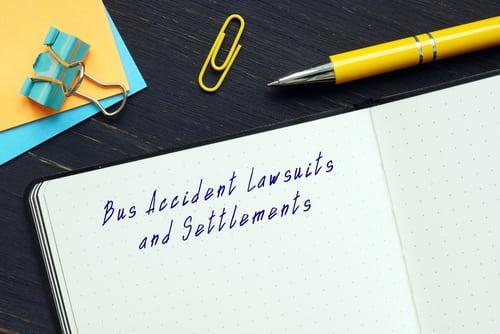Summary
Georgia law generally does not allow a plaintiff to pursue a “direct action” – i.e., a lawsuit against a driver and the driver’s insurance company – in a claim for personal injuries arising out of a motor vehicle collision.
When is Direct Action Permitted in Georgia?
There is one important exception to the general rule. Georgia allows for a “direct action” against an insurance company when the plaintiff is injured in a truck accident caused by a truck driver working for a trucking company.
Georgia’s Direct Action Statute is found in two separate statutes: OCGA § 40-2-140 and OCGA § 40-1-112. These two statutes now operate the same way as the former direct action statute, OCGA § 46-7-12.
Georgia’s Direct Action Statute actually dates back to 1937, when Georgia’s Public Service Commission actually required all motor carriers to register with the State and provide proof of sufficient insurance. Then, as is the case now, a motorist could pursue a personal injury case against the truck driver, the trucking company, and the insurance company listed on the trucking company’s registration.
Georgia’s public policy generally prohibits the introduction of evidence of insurance at trial because it could be prejudicial to the defendant and lead jurors to simply award every dollar of insurance coverage to the plaintiff because they know the money is not coming from an individual defendant’s pocket.
Whether that’s true or not, the Direct Action Statute allows a personal injury plaintiff to name the insurance company as a defendant and require the insurance company to appear at trial along with the truck driver and trucking company.
Who Do I Sue After a Truck Accident?
A personal injury plaintiff has two choices when pursuing a Direct Action:
- Sue the truck driver, trucking company and insurance company in one action in the same county
Or
- Sue the truck driver and trucking company in one action in one county and sue the insurance company in a separate action in the county where the insurance company maintains its registered agent.
It is most common to employ the former approach, but the trucking accident lawyers at HS Law can walk you through the pros and cons of both options.
Direct Action Against Motor Carriers and their Insurers
Importantly, a Direct Action is only proper if the trucking company was a motor carrier for hire at the time of the collision.
OCGA § 40-1-100(1) defines a “carrier” as “a person who undertakes the transporting of goods or passengers for compensation.”
OCGA § 40-1-100(12)(A) defines a “motor carrier” a “person owning, controlling, operating, or managing any motor vehicle, including the lessees, receivers, or trustees of such persons or receivers appointed by any court, used in the business of transporting for hire persons, household goods, or property or engaged in the activity of nonconsensual towing pursuant to Code Section 44-1-13 for hire over any public highway in this state.”
Effectively, these statutes allow for direct actions against motor carriers and their insurers except for school buses, local taxicabs, limousine companies, hotel shuttles, ambulances, federal government vehicles, or commercial trucks that haul solely that company’s own products.
HS Lawyers have more than three decades of experience with Georgia’s Direct Action Statute. HS Law knows every Direct Action is an opportunity to present evidence of insurance to the jury, which frees the jury to feel more comfortable allow a full, fair, and just award for our client.





